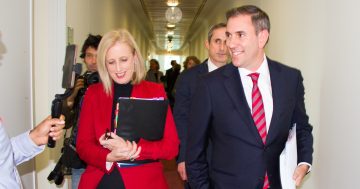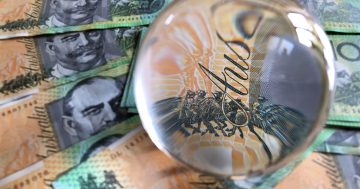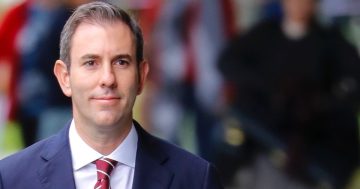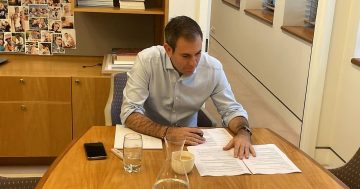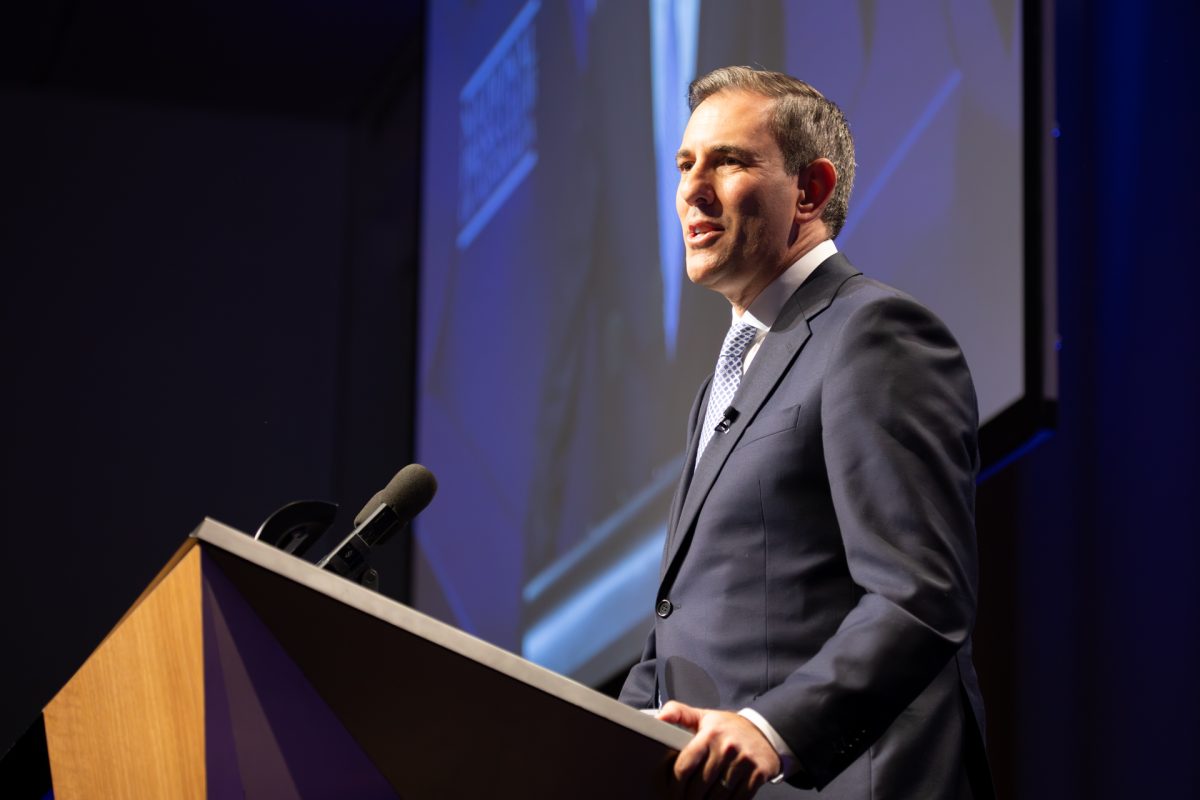
Treasurer Jim Chalmers is pleased with a greater final budget outcome than was forecast in the May budget. Photo: Michelle Kroll.
The Labor Federal Government has delivered two back-to-back surpluses, the first to do so in almost two decades.
Treasurer Jim Chalmers has boasted a $15.8 billion surplus for the past financial year, with the final budget outcome being more than $6 billion better than the $9.3 billion the May budget had forecast.
Labor’s 2022-23 budget delivered a surplus of $22.1 billion and now the 2203-24 budget surplus has edged close to $16 billion.
Announcing the 2023-24 final budget outcome on Monday (30 September), the Treasurer said reining in spending has been the key to achieving the welcome higher budget surplus.
“We’re the first government to post back-to-back surpluses in nearly two decades. A second straight surplus is proof of our responsible economic management,” Dr Chalmers said.
“Our bigger-than-expected surplus in the year just gone is entirely due to lower spending, with the tax take also lower.
“This kind of responsible economic management would be unrecognisable to our predecessors.”
Lower spending has seen payments as a share of total economic activity about 2 percentage points below what was forecast two years ago, and 87 per cent of revenue improvements were returned to the budget.
Finance Minister Katy Gallagher said it was also the government’s disciplined approach to spending that had allowed it to invest more elsewhere and do it more wisely.
“Posting back-to-back surpluses is a key part of our plan to take pressure off inflation while providing relief to families, who we know are under pressure,” Senator Gallagher said.
The budget position has improved by a cumulative $172.3 billion compared to what was forecast before the last federal election in 2022.
The Treasurer recently said the Reserve Bank of Australia was “smashing the economy” by keeping interest rates high.
Last Tuesday, the RBA kept the official cash rate on hold at 4.35 per cent, adding that rates are unlikely to come down before next year.
But the Coalition says it’s the government that is hurting the economy.
“Obviously, a lot of people are hurting with their increase in mortgage repayments; interest rates have gone up 12 times, and I think a lot of people really are struggling,” Opposition Leader Peter Dutton said last week.
“There’s uncertainty about employment now, so the economists talk about unemployment having to come up and the government forecast that in their budget, which would be crippling for a lot of families if you’re struggling to pay the bills now.
“I think if you look at the employment figures only released last week, the number of people going back for a second and third job – part-time job, extra hours – just to try and pay the bills, that is coming through as well …
“The government really should be about trying to make it easier at the moment, but I think there are a number of policy decisions they’ve made which have really added to inflation and the Reserve Bank is looking at what’s happening around the world – in the US, in Canada, in New Zealand, interest rates have already started to come down there.
“But here, inflation’s sticky and the Reserve Bank Governor’s saying that is because the government’s pumping so much money into the economy.”
Dr Chalmers visited Beijing last week for the rebooted Strategic Economic Dialogue between Australia and China.
On his return, the Treasurer said China’s economic growth was good for Australia’s economy.
“There couldn’t have been a better time to be in Beijing for my two days of engagements than this week,” he said in a statement he posted on social media on Sunday.
“The Chinese government recently announced efforts to boost growth in the Chinese economy.
“As Australia’s largest trading partner, what happens in the Chinese economy matters for workers, businesses, investors and communities in Australia.
“We welcome those efforts to boost economic activity, which were discussed in my meetings with Chinese counterparts.
“Throughout those meetings and across my two days in Beijing, we had frank and fruitful discussions and gained further insights into the performance of the Chinese economy.
“It was another important step forward in stabilising a crucial economic relationship, full of complexity and opportunity.”
Original Article published by Chris Johnson on Riotact.



